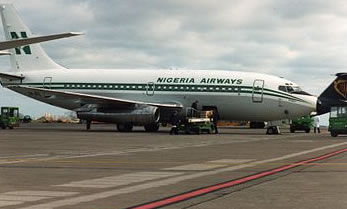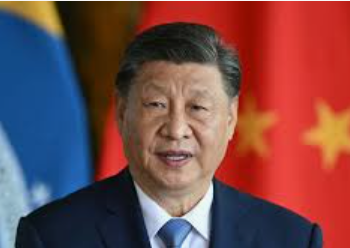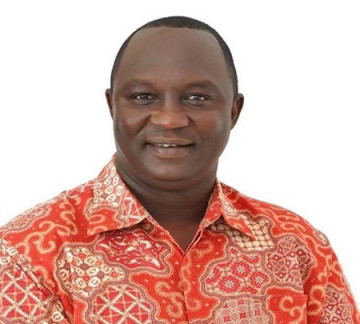From the ruins of Nigeria Airways, a new national carrier might soon emerge with the resolve of President Muhammadu Buhari to do so. At his behest, a 13-member committee was inaugurated a fortnight ago to work out the modalities. It was given just four weeks to submit its report. Apparently, the motive for this renaissance transcends economic, as the government says national pride, national interest and job creation are paramount. Therefore, the committee should painstakingly carry out its assignment, given that the country has had its fingers burnt before.
The panel, which is chaired by a former Managing Director of Discovery Airlines, Mohammed Abdulsalam, is to review past submissions by consultants on the venture; call for submissions from the Asset Management Corporation of Nigeria on the debt profile of domestic airlines; and to consult widely with stakeholders. Other terms of reference are “reviewing the report of the failure of Nigeria Airways and other private airlines; to consult with international partners on setting up a national carrier on public-private partnership basis; to develop the best model for the airline for Nigeria.”
Very critical is why the former carrier collapsed. But the insight provided by former President Olusegun Obasanjo is handy here: “When I was leaving office in 1979, there were 32 aircraft in Nigeria Airways fleet, but when I came back in 1999, I only met one. I looked back to history and discovered that the board of directors of the airline was corrupt. The board will form a company in Jessey Island, USA and will give the repairs of the aircraft to that company. So, that was how they embezzled the airline’s fund and ran it down.”
Not surprisingly, Obasanjo’s administration liquidated the airline in May 2003; and all efforts by the Goodluck Jonathan’s government to revive it under Stella Oduah, as Minister of Aviation, hit a brick wall. The return of a national airline is an issue for which opinions of Nigerians are sharply divided. The success stories of national airlines such as Emirates, Ethiopian, and Kenyan on the one hand, and the ownership transfers (public to private) of British Airways, and Lufthansa of Germany, on the other, heighten the debate.
However, we seem to have crossed the Rubicon with Buhari’s fixation on a new national carrier. What is crucial now is how to come up with a result-oriented template with which to run it. Our experience with the defunct Nigerian Airways should be a veritable guide to the government. Its role should be limited to providing the enabling environment for investors and Nigerians to take over the ownership of the proposed flag carrier.
It is this private sector business model that drives the operations of successful airlines globally. For instance, private investors own 88.52 per cent of Lufthansa shares, while its employees grabbed 3 per cent when it was privatised. British Airways, owned by Willie Walsh’s International Airlines Group, is listed on the London Stock Exchange and in the FTSE 100 Index.
Nearer home, in Africa, the Kenyan national carrier has been in operation since 1977 and the government owns only its 29.8 per cent equity. KLM controls 26.73 per cent shares of the company while the rest is shared among private investors, with its shares traded in Nairobi Stock Exchange and two other capital markets in East Africa. But Ethiopian flag carrier, an entirely public business concern, has been insulated from government’s interference or control. It is this disciplined attitude to governance that has made it to emerge as Africa’s powerhouse in the aviation industry. This is simply an inspirational lesson for Nigeria, coming from a country ranked among the world’s poorest.
The Ahmed Joda transition committee empanelled by Buhari had satiated his appetite for a fresh national airline when it recommended the merger of Nigeria’s debt-ridden airlines to form the nucleus of a public-private partnership for the envisioned behemoth. Certainly, this is far from the ideal. Presently, six of the country’s domestic airlines have a debt overhang of about N130 billion, for which they turned to Assets Management Corporation of Nigeria for survival.
No doubt, Nigeria has the market with its huge population of about 170 million people, and the 22 airports managed by Nigeria Airports Authority. Lagos, Abuja and Port Harcourt airports are said to have 75 per cent of the nation’s passenger traffic, while 90 per cent of revenue in 2011 came from just the Lagos and Abuja corridors. Flag carriers are accorded priority, especially in the apportionment of aviation rights to local or international markets. A successfully run national carrier will dramatically change the debilitating outlook of Nigeria losing about $2.3 billion capital flights annually on account of the non-existence of a national carrier.
It would be a game-changer, especially for domestic operations where services are anything but efficient, competitive and satisfactory. In fact, the situation is so overwhelming that flight delays and outright cancellations have become the norm, rather than the exception.
For the new national airline to fly high, the project should be all embracing. A total overhaul of Nigeria Airspace Management Authority, Nigerian Civil Aviation Authority and FAAN is imperative. Aviation is an international business; therefore, we should open our doors to foreign investors with capital and technical expertise to participate in the market.











































